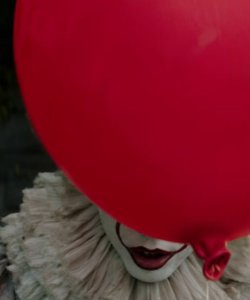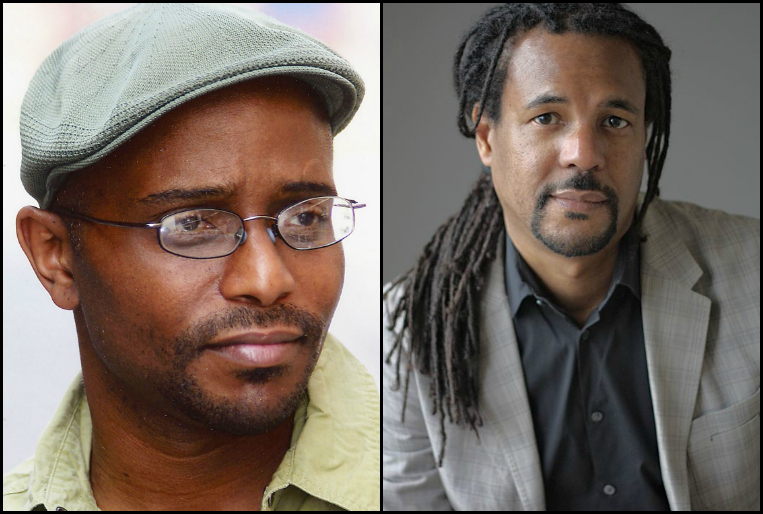A Quiet Passion, Viet Thanh Nguyen’s Early Writing Days, and More
Kathryn Schulz chronicles literature’s obsession with the Arctic; the case for hate-reading; an anesthesiologist’s take on poetry; and other news.
Jump to navigation Skip to content
Kathryn Schulz chronicles literature’s obsession with the Arctic; the case for hate-reading; an anesthesiologist’s take on poetry; and other news.
Min Kym talks about the life experiences that inspired her debut memoir, Gone: A Girl, a Violin, a Life Unstrung (Crown Publishing Group, 2017), and plays “Méditation” from the opera Thaïs composed by Jules Massenet on her violin. Kym’s book is featured in Page One in the May/June issue of Poets & Writers Magazine.
“When I read her the old fairy tales about stepmothers, I worried I was reading her an evil version of myself,” writes Leslie Jamison in a recent essay published in New York Times Magazine. “In the Shadow of a Fairy Tale” explores Jamison’s personal experience as a stepmother through the lens of stepmothers in fairy tales and cultural archetypes. Choose a fairy-tale archetype that feels resonant in some way to you, whether now or in the past. Write an essay examining the various connections between this archetype and its contemporary sociocultural counterpart, which may have resulted in certain expectations and anxieties. In what ways do you fit—and also not quite fit—into the role?
In this video, Challis Popkey speaks with author Sarah Gerard about her novel, Binary Star (Two Dollar Radio, 2015), and her first essay collection, Sunshine State (Harper Perennial, 2017). Gerard’s debut essay collection is featured in Page One of the May/June 2017 issue of Poets & Writers Magazine.
“You might as well start by confessing your greatest shame. Anything else would just be exposition.” Sarah Manguso reads from her essay collection 300 Arguments (Graywolf Press, 2017) and speaks with Paris Review editor in chief Lorin Stein at the Center for Fiction.

Poets and writers share their notes on writing in this series of micro craft essays. In the latest installment: revision that will force your verbs into action and clarify your intent.
The winners of the 101st annual Pulitzer Prizes were announced today at Columbia University in New York City. Of the twenty-one categories, the prizes in letters are awarded annually for works of literature published in the previous year. Each winner receives $10,000.

Tyehimba Jess won the prize in poetry for his collection Olio (Wave Books). The finalists were the late Adrienne Rich for Collected Poems: 1950-2012 (W.W. Norton) and Campbell McGrath for XX (Ecco).
Colson Whitehead won the prize in fiction for his novel The Underground Railroad (Doubleday). The finalists were Adam Haslett’s Imagine Me Gone (Little, Brown) and C. E. Morgan’s The Sport of Kings (Farrar, Straus and Giroux).
Hisham Matar won the prize in autobiography for The Return: Fathers, Sons and the Land in Between (Random House). The finalists were Susan Faludi’s In the Darkroom (Metropolitan Books) and the late Paul Kalanithi’s When Breath Becomes Air (Random House).
Visit the Pulitzer Prize website for a complete list of winners and finalists in each of the twenty-one categories, including general nonfiction, journalism, and drama.
Hungarian-American newspaper publisher and journalist Joseph Pulitzer established the Pulitzer Prizes in 1911, and the first prize was administered in 1917. The 2016 winners included poet Peter Balakian and fiction writer Viet Thanh Nguyen.
Listen to Tyehimba Jess read an excerpt from Olio, and hear an interview with Colson Whitehead about The Underground Railroad in Ampersand: The Poets & Writers Podcast.
(Photo, from left: Tyehimba Jess, Colson Whitehead)
Rebecca Solnit and the impact of feminist storytelling; Edgar Allen Poe’s foray into natural philosophy; the challenges of writing a Trump biography for children; and other news.
“Let Nature be your teacher,” wrote William Wordsworth in his poem “The Tables Turned.” As spring arrives, seek out changes in the environment around you and jot down some observations: later sunsets, lighter clothing, the pastel colors of budding leaves and flowers, the buzzing and chirping of insects and birds. Write a personal essay that explores your relationship with nature, whether that involves being out in the woods or desert, or interactions with urban wildlife and navigating public transportation in extreme weather conditions. Reflect upon the ways in which the natural world introduces itself into your everyday life and how it affects your moods and emotions. How does the changing light and weather influence your daily rhythms? Are you uplifted and energized by a sense of renewal, or exasperated by pollen and allergies? What has nature taught you about yourself?
Colum McCann’s writing advice; Patricia Lockwood on her new memoir, Priestdaddy; the changing definition of historical fiction; and other news.